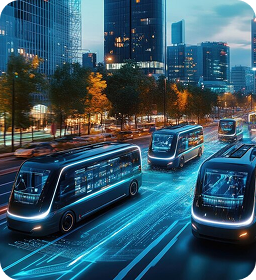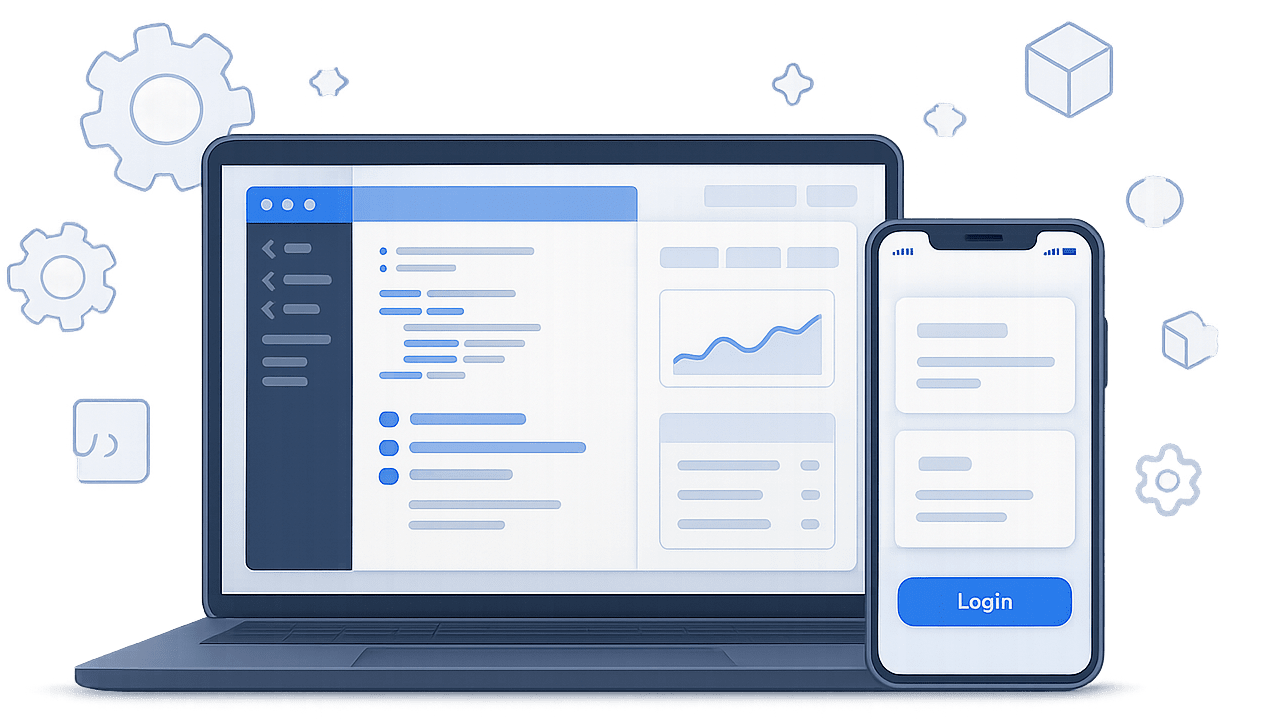In today’s densely populated cities, the necessity for reliable mobility solutions has never been greater. The rise of taxi app services has transformed how individuals travel from one location to another, providing unprecedented convenience and accessibility. However, as the industry becomes more competitive and customers’ expectations rise, taxi app developers are continually looking for new ways to increase efficiency and user experience. Enter artificial intelligence (AI) and machine learning, game changers that are transforming the landscape of taxi booking app systems.
In this post, we will talk about the involvement of AI in Taxi booking apps and its significance.
What is an AI Taxi Booking App?
The on-demand taxi booking app delivers convenient online booking services designed for both regular consumers and commercial clients. Customers may easily arrange trips on their smartphones with a few touches. Drivers, in turn, receive trip requests via the app or a separate panel app, allowing them to quickly accept or decline bookings based on their availability and other criteria. These taxi booking apps offer a plethora of appealing features, such as the ability to set drop locations, use geolocation for pinpoint accuracy, select preferred vehicle types, easily verify or revoke rides, track live taxi status in real time, and obtain driver contact information within the app for seamless communication and payment processing.
Top Ways AI is Transforming Taxi Booking App Development
Integrating AI in the Taxi booking app development process can be a value-for-money deal as it makes the entire Taxi booking process easy and hassle-free. Here are the top ways artificial intelligence is scaling the entire Taxi booking system:
-
- Smart Routing and Navigation
One of the most important elements of any taxi booking software is the ability to deliver the quickest, most efficient route from point A to point B. AI algorithms based on machine learning and big data analytics can now optimize these routes in real time, taking into account traffic, weather, and roadworks updates. Instead of just providing the shortest road, AI determines the ideal route based on a variety of criteria to minimize delays.
-
- Predictive Demand Analytics
AI allows taxi booking applications to forecast demand more accurately. Machine learning models use previous ride data, time of day, weather conditions, and special events (such as concerts or sporting events) to predict where and when ride demand will increase. With this knowledge, drivers may be strategically placed in high-demand regions even before requests arrive.
-
- Voice-enabled Booking Request
Voice assistants powered by AI are making the booking process even easier. Users can now book trips using voice commands without having to open the app thanks to integration with virtual assistants such as Siri, Google Assistant, and Alexa.
This hands-free convenience is especially useful for those who find manually entering information cumbersome, such as when driving or multitasking. AI’s voice recognition capabilities keep increasing, resulting in accurate and timely responses to human commands.
-
- Driver and Passenger Security
AI is also helping to improve safety features in taxi booking apps. AI can authenticate the identities of both drivers and passengers by combining facial recognition technologies with biometric verification. This lowers the danger of fraud and increases trust between the two parties.
It can also analyze driving habits in real-time, such as forceful braking, acceleration, or speeding, and inform drivers or the company if risky behavior is discovered. Predictive AI systems can also offer routes that reduce the likelihood of accidents, hence boosting rider safety.
-
- Automated dispatch systems
Artificial intelligence has fundamentally altered the dispatching process for taxi booking apps. Previously, manual dispatch systems paired drivers and passengers based on proximity. Today, AI-powered dispatch systems use a variety of parameters, including driver location, traffic, ride history, and driver rating, to automatically assign the best-suited driver to each request.
These AI-powered dispatch systems are fast, accurate, and unbiased, ensuring that drivers are assigned rides efficiently and passengers have minimal wait times.
-
- Fraud Detection and Prevention
In any payment system, fraud is a major risk. Artificial intelligence-powered solutions in taxi booking apps aid in the detection and prevention of fraudulent behaviors such as bogus ride bookings, account hacking, and payment fraud. AI systems are continually analyzing user behavior patterns and flagging any dubious behaviors.
In this case, if a user’s account suddenly books many rides from different locations at the same time, the AI will recognize this as anomalous behavior and provide an alert. This helps to avoid fraudulent transactions and protects both the company and its customers.
Wrap Up!
The incorporation of AI into the taxi booking app development process is about more than just increasing efficiency; it is about providing a more intelligent, personalized, and secure experience for both drivers and passengers. AI-driven innovations are transforming the industry in every way, from predicted demand analytics to personalized marketing. As AI technology advances, we should expect to see more complex, frictionless, and user-centric taxi booking apps in the future.
The competitive advantage today lies in how organizations use AI to promote growth, boost customer satisfaction, and optimize operations. Taxi booking apps that use these advances will likely dominate the industry in the future years.









































































